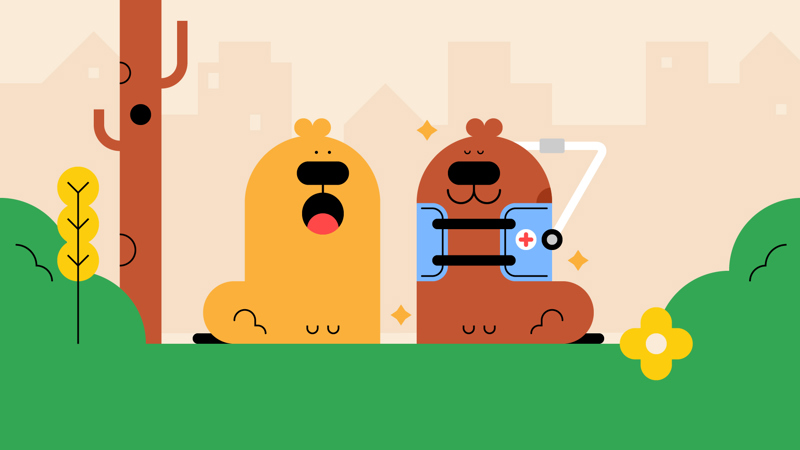
Distinguishing disability
You’ll need
- Scrap paper
- Pens or pencils
If you want to, you could contact an organisation such as the Guide Dogs or National Autistic Society to visit and help everyone find out about disability. If anyone’s disabled or knows anyone who’s disabled (and they’re happy to talk to the group), you could invite them along to talk about their experiences.
- Split into small groups. Each group should talk about what they think the word disability means, and different ways people might be disabled.
- Everyone should share their ideas – what did they talk about? The person leading the game should help everyone understand what a disability is, and different ways people might be disabled.
- Get back into the small groups. The person leading the game should give each group a different impairment or condition to consider. For example, some people could think about sight impairments, others could think about people who use wheelchairs, or people with dyslexia.
- Groups should think about barriers people might face. What sorts of things might mean they’re left out or excluded?
- Groups should talk about things that could get rid of or avoid these barriers to make places and activities accessible. We’ve included some examples, to get you started.
- Everyone should come back together and share some of their ideas. What can you do to make sure everyone’s included?
Reflection
This activity helped you to respect others. Now that we know that some disabilities are invisible, how does this change how we think about other people (for example, if we see someone very angry or upset we won’t stare at them or presume they’re being naughty)? Why is it important to make sure disabled people are able to access things? Why is it important to ask before you try to help a disabled person?
This activity also gave you the chance to care about other people. How do you think it feels to be left out because people don’t make activities accessible? How do you think it feels when people make sure that things are accessible? Why is it important that we think about accessibility? What can we do to help make things accessible?
Safety
All activities must be safely managed. You must complete a thorough risk assessment and take appropriate steps to reduce risk. Use the safety checklist to help you plan and risk assess your activity. Always get approval for the activity, and have suitable supervision and an InTouch process.
Groups could think about a game or activity that you enjoy. Are there any barriers? How could it be adapted to be more inclusive?
- No one has to speak to the whole group, if they don’t want to. They could speak to a small group, or even just a partner. More confident speakers could help them feedback.
- Be aware if anyone in your group is disabled or has a condition (or if anyone in their family does). They may or may not be happy to talk about it – always check with them (and their parents and carers) first. If some topics are sensitive, you may need to avoid them.
All Scout activities should be inclusive and accessible.
Disability is one of the themes of A Million Hands. If people are interested, they could check out the A Million Hands resources, and even work towards their Community Impact Staged Activity Badge by taking action around disability.

